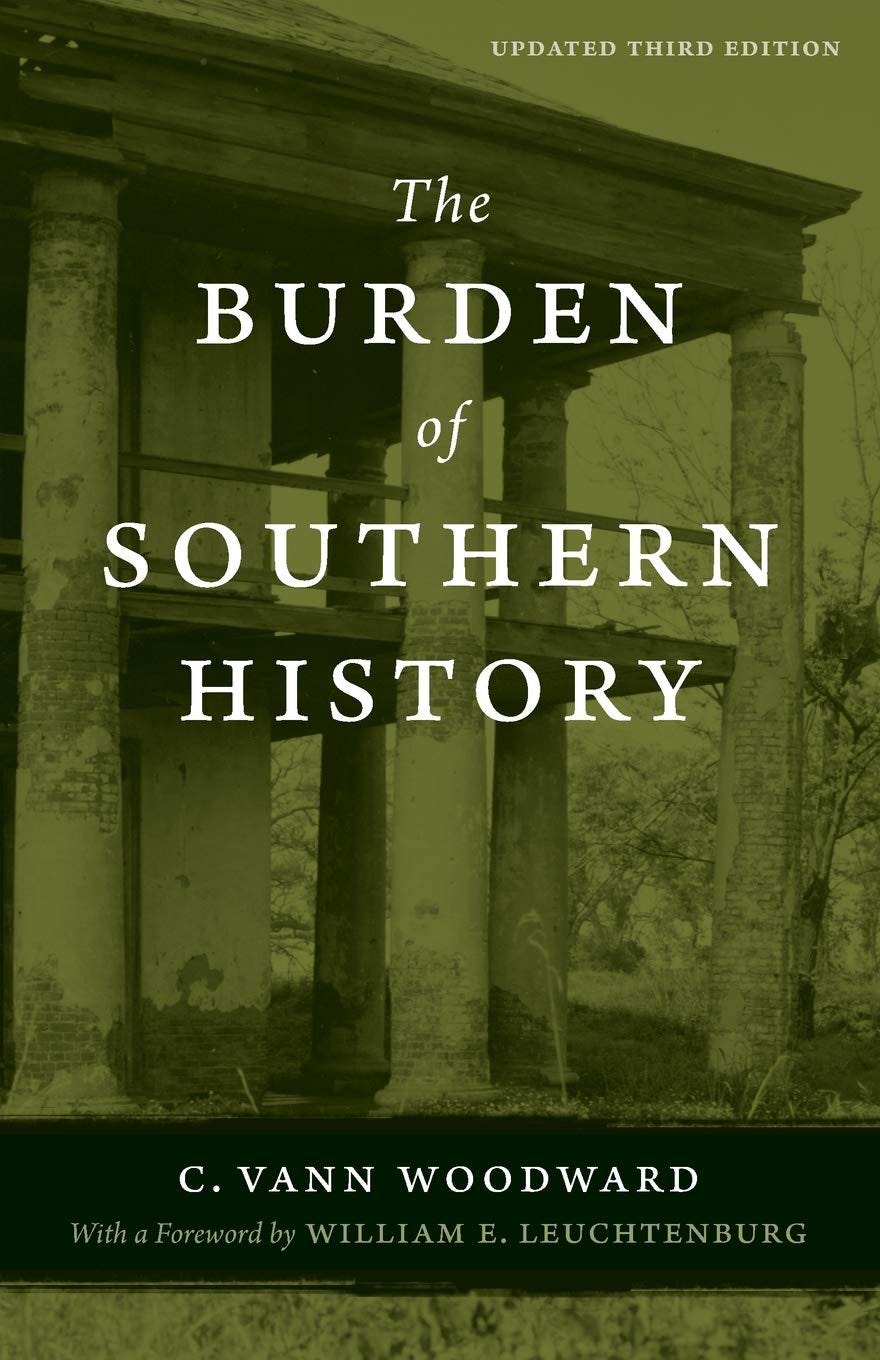While reaching for a book yesterday, I accidentally pulled my copy of C. Vann Woodward’s The Burden of Southern History. I hadn’t read it in years and decided to put it aside for later. I eventually came back to it and reread the chapter titled, “The Political Legacy of the First Reconstruction.” I was immediately impressed with how fresh and even prescient the chapter felt, now 60 years after the book’s first publication.
Perhaps I shouldn’t have been so surprised. After all, Woodward was keenly interested in understanding the growing conflict over civil rights when the book was first published in 1960. This particular chapter focuses on the question of why Republicans eventually pushed for the Fifteenth Amendment.
According to Woodward:
Enfranchisement came in belatedly, surreptitiously, almost disingenuously advanced by its proponents, grudgingly accepted by a North that moved under duress and the argument of necessity and greeted with gloomy forebodings of failure, if not disaster. These attitudes were widespread, and they were not confined to copperheads, doughfaces, and mossback conservatives. (p. 89)
Woodward reminds us that Radical Republicans and abolitionists such as William Lloyd Garrison, Charles Sumner, Horace Greeley, General O.O. Howard, and Thaddeus Stevens all initially balked at the idea of extending the right to vote to African Americans.
Most of them were concerned about the lack of education among the former slaves, while Stevens specifically worried that they would fall under the influence of their former masters and their votes exploited: “I do not therefore want to grant them this privilege for some years…four or five years hence, when the freedmen shall have been made free indeed, when they shall have become intelligent enough, and there are sufficient loyal men there to control the representation from those States.” (pp. 92-93)
What eventually drove Stevens and other Radical Republicans, along with the rest of the party, to call for a new amendment to the Constitution was a concern that without it Democrats would retake political control in Washington, D.C. According to Woodward, Andrew Johnson’s plan for Reconstruction would increase the Southern delegation in the House by thirteen members. Without African Americans voting it was likely that all of these seats would be filled by Democrats. In short, the future of the Republican Party was at stake.
The business community also had an interest in maintaining Republican control. On nearly every delicate and disturbing economic issue of the day,” writes Woodward, “the business community recognized in the unreconstructed South an antagonist of long standing.” Woodward acknowledges a third factor, or what he refers to as a “philanthropic purpose, the argument that the freedmen needed the ballot to defend and protect their dearly bought freedom,” but he is quick to note that this did not override the party’s “pragmatic and economic interests.” (pp. 96-97)
Woodward’s interpretation of the history and legacy surrounding the Fifteenth Amendment must have appeared in stark contrast with the moral claims to voting rights then being demanded by African Americans—claims that were often framed with Reconstruction in mind.
This ulterior motivation, then, is the incubus with which the Negro was burdened before he was ever awakened into political life. The operative and effective motives of his political genesis were extraneous to his own interests and calculated to serve other ends. If there ever came a time when those ends—party advantage and sectional business interests—were better served in some other way, even in a way destructive of the basic political rights of the race, then the political prospects of the Negro would darken. Another incubus was the strongly partisan identifications of his political origins. The major national party of opposition took no part in those origins, regarded them as wholly inimical to its interests, and consequently felt not real commitment to the movement nor to the preservation of its fruits. If there came a time when that party was in the ascendancy, even locally, the political future of the Negro again would darken. To these evil portents should be added the strong resistance to Negro suffrage in the Northern states, the obvious reluctance and hesitance of radical leaders to commit the party to that course, and the grudging acquiescence of the North in the coercive use of it in the South. (pp. 97-98)
Woodward intended this reading of Reconstruction as a warning to Americans in the 1960s. Reconstruction was not a Golden Age of Black political rights and civic engagement or a time of “high faith and firm resolution, a time of forthright and passionate action, with no bowing to compromises of ‘deliberate speed.’ (p. 107)
I can’t help but wonder if we should heed Woodward’s warning for how we view the civil rights era. Over the past few years we’ve witnessed a relentless push to undercut landmark voting rights legislation and other laws at the state and federal level, this time, by that other “major national party.”
Woodward reminds us that our nostalgic views of the past—regardless of the form it takes—obscure a more complex and perhaps disturbing reality. Nothing is permanent and nothing is inevitable.





I've just come across a very interesting title that counter-frames the civil rights movement in light of what's going on today. It may prove a fruitful read for further reflections on the importance and meaning of civil rights and civil disobedience actions today. It's called "Seeing Like an Activist: Civil Disobedience and the Civil Rights Movement" by Erin R. Pineda.
Well done, good to see you back ❤️